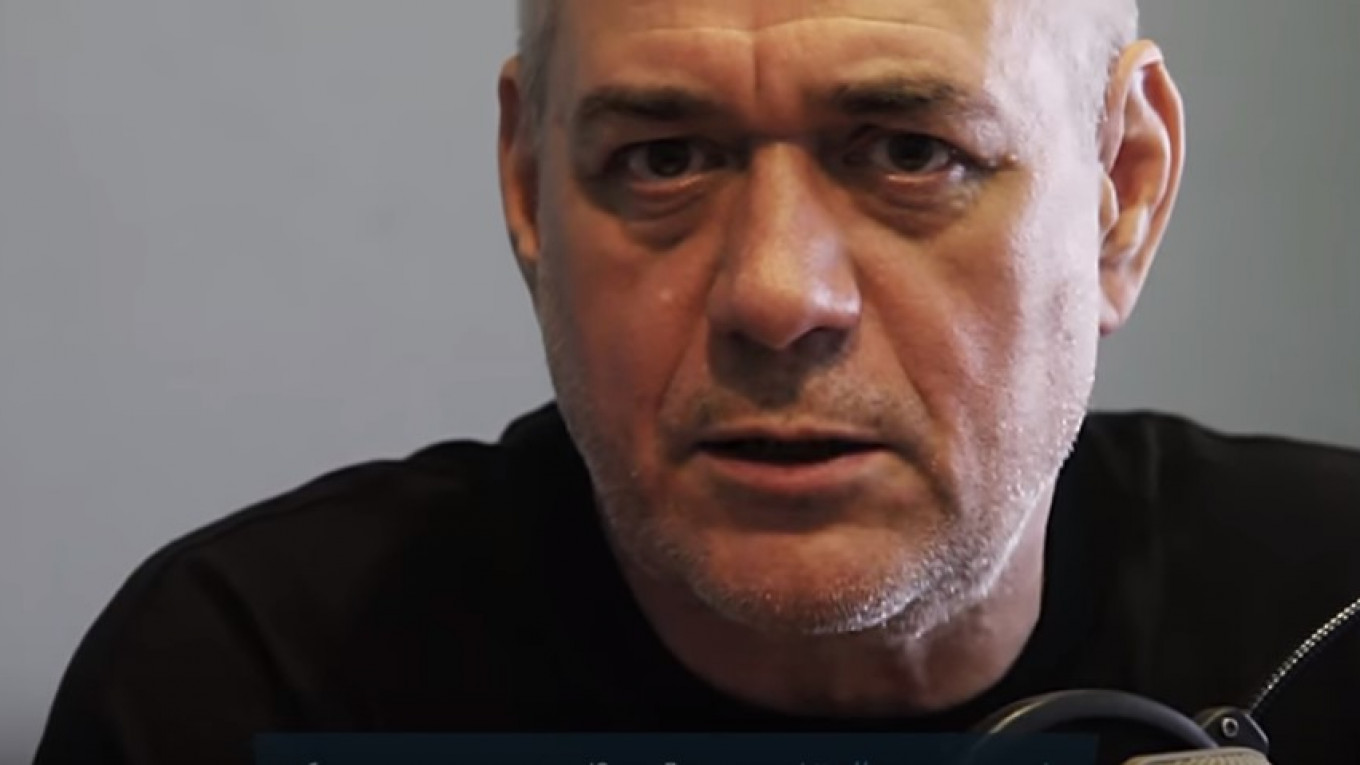Sergei Dorenko died on May 9 in Moscow. According to multiple media reports, he was riding his motorcycle not far from the city center when he had a heart attack, drove into the oncoming traffic lane and then slid to a stop. No other vehicles were involved in the accident, and he apparently died on the scene. He was 59 years old.
Dorenko was one of Russia’s most famous, most politically engaged and most controversial journalists.
After graduation from the Moscow Friendship University and working as a translator in Africa, he returned to Moscow and became involved in journalism. Handsome, imposing and graced with a deep, resonant voice, he quickly made a name for himself on television in the 1990s — as much for his presentation style and investigative journalism as for his scandalous departures. He jumped from station to station until settling in 1996 at ORT (now Channel One), where he hosted a weekly analytical program until 1999.
He appeared to switch political sides with swift regularity. He was first focused on criticism of Boris Yeltsin’s government and his ministers; then he launched weekly attacks against Yevgeny Primakov and, especially Moscow mayor Yury Luzhkov, to the great electoral benefit of Vladimir Putin; and finally, after supporting Vladimir Putin, he turned against him after the Kursk submarine disaster. Although he sometimes produced insightful and factual investigations and reports, he had a reputation of being “for hire,” particularly after his alignment with Boris Berezovsky, and called himself a "machine gun."
After Dorenko’s report on the Kursk submarine disaster and its stinging criticism of Vladimir Putin, Dorenko was fired from ORT — although ORT general director Konstantin Ernst maintained it was for other infractions. He never again worked in network television.
He did continue to work in media, however, but now in radio. He had a show on Ekho Moskvy, was director of the radio station Russian News Service from 2008 to 2013, and since 2014 hosted a popular morning news show called Govorit Moskva (Moscow Speaking).
In 2003 he became a member of the Russian Communist Party (CPRF) and was politically active in Russia and Ukraine. He left the CPRF in 2012. In 2007 he showed Western news organization a tape of an interview done in 1998 with Alexander Litvinenko — later killed by Polonium in London — and other FSB officers admitting to carrying out orders to kill, kidnap or frame Russian businessmen and politicians.
Dorenko will be buried at the Troyekurovskoye Cemetery in Moscow.
Below is Sergei Dorenko’s report on the Kursk submarine tragedy.
A Message from The Moscow Times:
Dear readers,
We are facing unprecedented challenges. Russia's Prosecutor General's Office has designated The Moscow Times as an "undesirable" organization, criminalizing our work and putting our staff at risk of prosecution. This follows our earlier unjust labeling as a "foreign agent."
These actions are direct attempts to silence independent journalism in Russia. The authorities claim our work "discredits the decisions of the Russian leadership." We see things differently: we strive to provide accurate, unbiased reporting on Russia.
We, the journalists of The Moscow Times, refuse to be silenced. But to continue our work, we need your help.
Your support, no matter how small, makes a world of difference. If you can, please support us monthly starting from just $2. It's quick to set up, and every contribution makes a significant impact.
By supporting The Moscow Times, you're defending open, independent journalism in the face of repression. Thank you for standing with us.
Remind me later.







